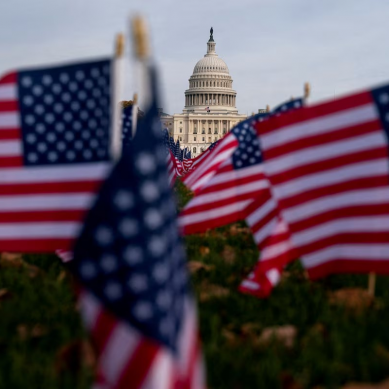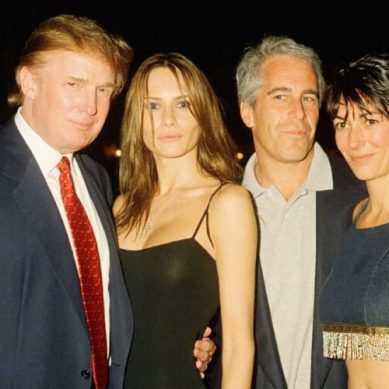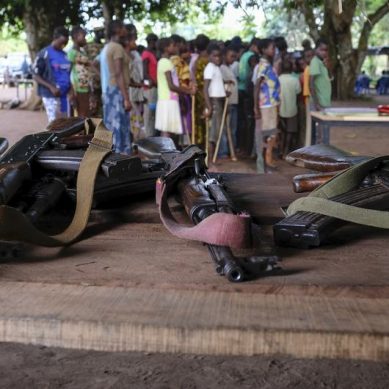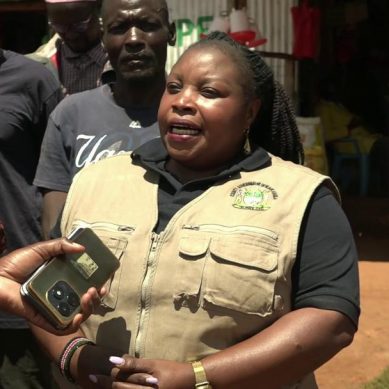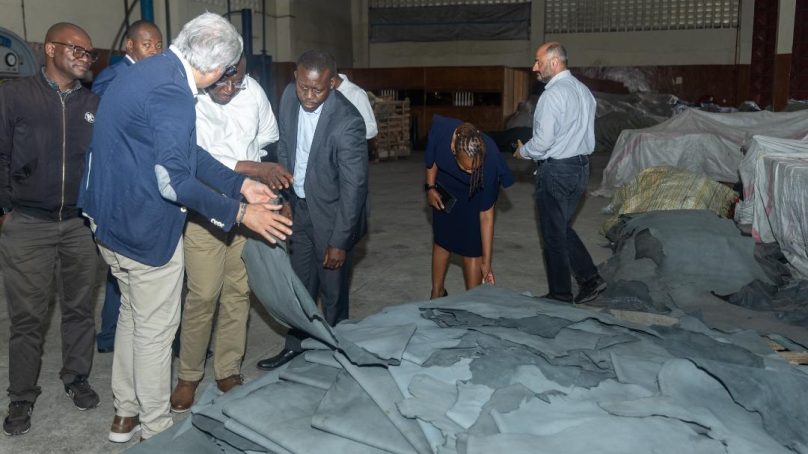
After decades in the doldrums, the Kenya leather and tanning industry is bracing for rebound following financial and expertise injection by Italy and Kenya’s Equity Bank.
Ahead of the revival, Italy has announced commitment reviving Kenya’s ailing leather and tanning industry in Kenya, with plans to spread its wings in the wider East and Central African region.
Equity Bank, as the strategic partner, will provide financial backup.
The ministries of agriculture and livestock development and that of investment, trade and industry welcomed the partnership, with Principal Secretary for Livestock Development Jonathan Mueke reaffirming the government’s commitment to develop the leather value chain.
In a speech delivered on his behalf by the Kenya Leather Development Council Chief Executive Officer Isaack Noor, Mueke pointed out that Kenyan authorities and policymakers remain at the forefront of championing an environment that supports large-scale investment in the leather sector.
“We are keen on increasing the supply of quality hides and skins by training slaughterhouse staff, developing the necessary infrastructure such as the Kenanie Leather Industrial Park in Machakos County, to facilitate aggregation for smallholder farmers as well as negotiating global agreements and supporting skills development,” announced the PS.
He reassured investors and business partners of the government’s support through the Foreign Investment Protection Act, the Investment Promotion Act and the Investment Dispute Convention Act, which safeguard foreign investments.
Speaking during the stakeholder meeting at Equity Centre in Nairobi, Italian Ambassador to Kenya Roberto Natali noted that the agreement marks a significant step in strengthening the relationship between Kenya and Italy as well as strengthening the leather industry ties between the two countries.
“A delegation of leather industry experts and players from Italy is here with me, ready to explore ways to build capacity, establish more tanneries and help develop and maintain an efficient leather supply chain in East and Central Africa,” said Natali.
He highlighted that these efforts are aimed at adding value to the over five million skins of animals that go to waste every year in Kenya, reiterating Italy’s willingness to share knowledge, best practices and exchange technology with industry players in the country.
Further, the ambassador said that Kenya, with its abundant livestock and growing industrial base, is uniquely positioned to become a regional hub for leather processing and production of related products.
“We will support players in the industry, especially now that the authorities continue to emphasise the priority of leather as a key value chain through which youth can get jobs,” he assured, underscoring the importance of the delegates’ week-long knowledge exchange tour, which included field visits to local smallholder livestock farmers, slaughterhouses, leather processors and related products manufacturers.
Positioning Equity Bank as a reliable and responsive financial partner, Equity Group’s Chief Strategy Officer Brent Malahay outlined the financial institution’s plan to catalyse the continent’s huge potential through the Africa Recovery and Resilience Plan (ARRP).
He insisted that Kenya presents significant growth potential across 12 key sectors, with leather products being a major subsector in the livestock sector.
“Illustrating Equity’s diverse investment focus, sectors like transport and energy have also been prioritised for investment. Kenya also has a competitive advantage, which positions the country to soon become a regional or even global hub in the leather sector,” said Malahay, adding that the country has a robust value chain involving thousands of businesses supported and insured by Equity.
Presenting Equity’s value proposition to local leather industry players, Malahay welcomed investors to explore expansion partnerships with Equity, revealing that those that stand to benefit include 13 major registered tanneries, with an estimated annual installed capacity of 31,440 tonnes of hides and 15.6 tonnes of skins, as well as 49 large slaughterhouses, 322 medium slaughterhouses and 1,735 slaughter slabs.
Welcoming the partnership, specialists from Italy – including manufacturers of machines, technologies and chemicals used in de-hairing and tanning hides and skins – said they are ready to help the region develop a sustainable leather value chain to benefit farmers and create jobs for youth.
Representatives from key entities in the delegation, including UNPAC (National Association of Italian Leather Chemicals Manufacturers), UNIC (Italian Tanners’ Association), and ICEC (Institute of Quality Certification for the Italian leather sector), spoke highly of the partnership.
To deeply understand the local leather market and connect Italian businesses with key stakeholders, the delegation went for field visits to livestock farms and hides and skins processors, including Farmers Choice, Reddamac Leather Centre, Ikwetta and Alpharama.
Agostino Apolito, the general director of ASSOMAC (the national association that represents the Italian manufacturers of footwear, leather goods and tanning machinery) explained how farmers and traders stand to benefit.
“Italy is a global leader in the leather industry and we want to work with Kenyan and African farmers and other leather industry players to support them through skills and technology transfer and enhanced European market access,” he said as he addressed farmers, traders and representatives of related associations present.
Key local leather industry players also welcomed the leather value chain development drive by Equity Bank as Sambasiva Rao Pamidimukkala, the managing director of Alpharama Tannery in Athi River, illustrated how his tannery became a regional leader in the procurement and processing of hides and skins in East Africa later making inroads into the global leather market in partnership with Equity.
“We continue to support farmers and help them maintain quality of skins and hides, even as we eye expansion in the region,” the MD said.
The knowledge exchange visit builds on an initial stakeholder engagement four months ago and follows a cooperation agreement between Equity Bank and the Kenya Investment Authority (KenInvest) under the Ministry of Investments, Trade and Industry (MITI).
The Equity/KenInvest partnership is keen on revitalising Kenya’s investment landscape with special focus on some key sectors, starting with the leather industry.
Through these partnerships, Equity is reinforcing its role as a key driver of socio-economic transformation in Kenya’s leather industry, contributing to the creation of a more competitive, sustainable and globally recognized sector.
A Tell Media / KNA report / By Michael Omondi
